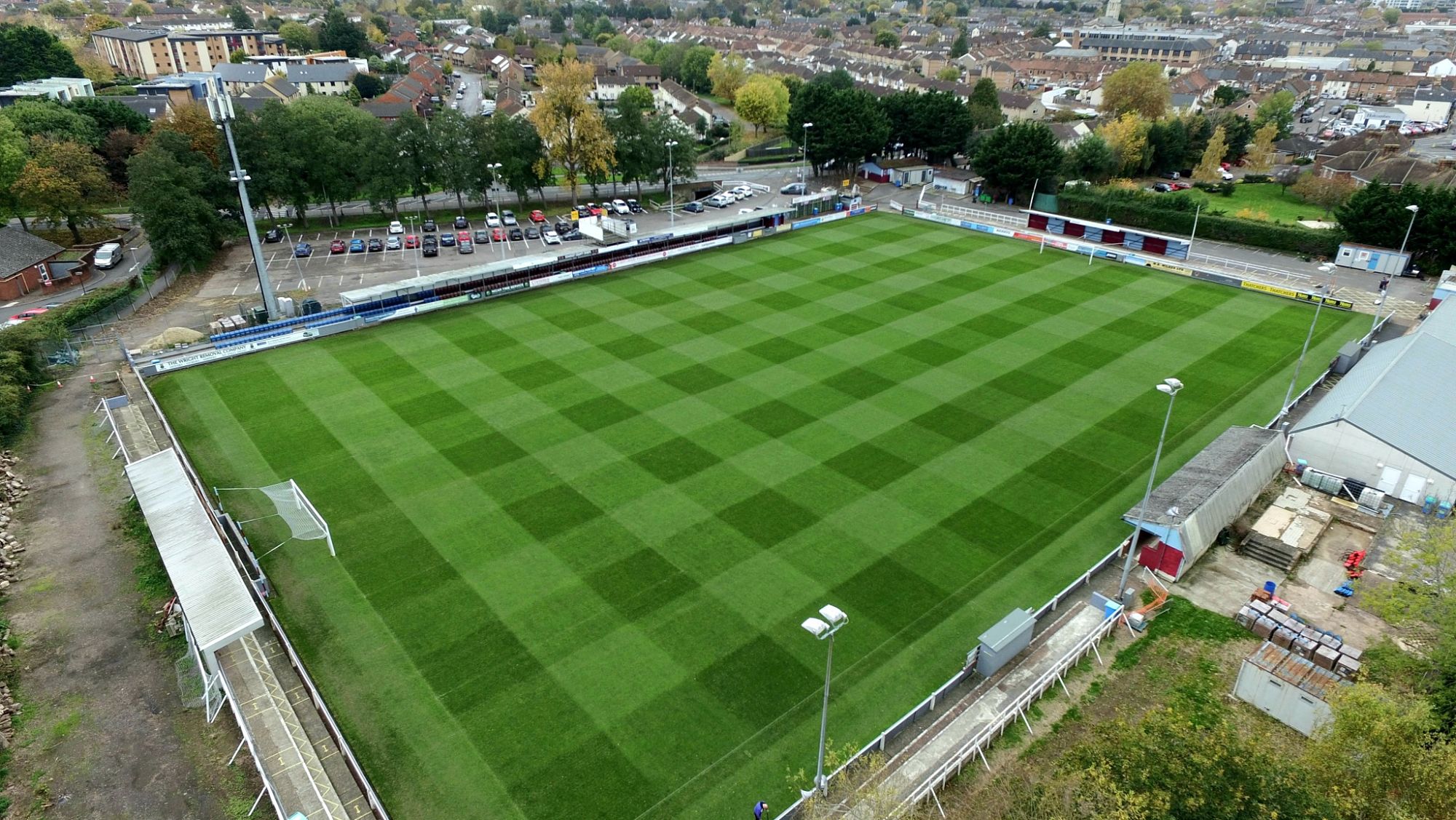By Harry Mottram: Taunton Town FC known as The Peacocks due to their claret and blue kit have been issued a winding up order by the taxman. If His Majesty’s Revenue and Customs (HMRC) are successful in chasing an undisclosed but presumably substantial sum of money then they could join a long list of football (and nowadays professional rugby clubs) in going bust.
The team have been promoted to the sixth tier of the football pyramid – just two promotions away from League Two. However with all promotions come increased costs as teams try to bolster their position in a more competitive division – Taunton are currently six points off the drop zone with games in hand so potentially OK if they can keep trading.
The taxman will have to get a court hearing for a judge to agree on the winding up order which will begin the process of compulsory liquidation. However in many cases the issuing of a winding up order is seen as a negotiating tactic to force the debtor to come up with an offer to pay or an offer of paying in instalments. If the judge agrees then the Official Receiver becomes liquidator when the order is made but an Insolvency Practitioner will be appointed to take over if the company has significant assets. The liquidator’s role is to realise the company’s assets, pay all the fees and charges arising from the liquidation, and pay the creditors as far as funds allow in a strict order of priority. That could mean the county town of Somerset loses its football club which would be a social tragedy – but not unique.
At the last count ICSM listed about a third of all football league clubs had gone bust at some stage but had been rescued, sold on, restarted from scratch or disappeared and remerged under a slightly different name.
For Taunton and teams like them the finances may not be on the scale of the Premiership or even Leagues one and two – but they are critical. A sponsorship package at the club for a game is only £45 per head – so not exactly on the scale of Manchester United.
Ian Carrotte of ICSM whose offices are only just up the road in Bridgwater said: “This is very disconcerting for Somerset football fans as this season we have four county clubs in the division with Yeovil the most likely to go up. The local derby games against Weston-super-Mare, Yeovil and Bath are sell-outs – bringing in extra cash – so we hope the situation with HMRC can be resolved and all suppliers paid in full so that the club can continue.”
Last year Scunthorpe were served with a winding up order but are still in business. Those with long memories will recall how Accrington Stanley folded in the 1960s – although the club was eventually reborn. These are some of the clubs in England and Wales that have gone bust in the past and then returned after being reconstructed:
Bradford City in 1983, Charlton Athletic in 1984, Middlesborough in 1986, Tranmere Rovers in 1987 and Newport County in 1989. In the 1990s Walsall, Northampton Town, Kettering, Aldershot, Maidstone, Hartlepool, Barnet, Exeter, Gillingham Doncaster, Millwall, Bournemouth, Crystal Palace, Chester and Portsmouth all entered administration or applied for a CVA to survive – in this century Hull, QPR, Bury, Halifax, Bradford, Notts County, Barnsley, Leicester, Port Vale, York, Derby County, Ipswich, Wimbledon, Oldham, Darlington, Bradford City (again), Wrexham, Cambridge, Rotherham, Crawley, Boston, Leeds, Luton, Bournemouth, Rotherham, Halifax, Darlington, Southampton, Stockport, Chester, Northwich Victoria, Farsley Celtic, Salisbury, Weymouth, Crystal Palace (again), Portsmouth, Plymouth, Rushden and Diamonds, Darlington(again), Portsmouth (again), Port Vale (again), Aldershot (again), Bolton, Bury, Rhyl, Wigan, Bury (again) and Derby County (again).
In Scotland the same situation saw these clubs also hit the rocks in this century: Queen’s Park, Greenock, Clydebank, Airdrieonians, Motherwell, Dundee, Livingston, Gretna, Livingston (again), Dundee (again), Rangers, Dunfermline and Hearts.
Glasgow Rangers hit the rocks in 2012 when the club went into administration when debts hit £168.9 million pounds. More than half of the debt was to the taxman – but the list of unsecured creditors included the corner shop by the Ibrox ground (£567.45), a face painter called Susan Thomson (£40), the police £51,882 and the ambulance service £8,438. And they also owed other football clubs a total of £3.3 million pounds – a shocking list of creditors.
Ian Carrotte again stressed suppliers to be especially cautious when granting credit to sports clubs as they so often trade off the notion they can never go bust. The opposite is true when you look at the list of insolvencies.
++++++++++++++++++++++++++++++

ICSM CREDIT
For information on ICSM visit www.icsmcredit.com or call 0844 854 1850.
ICSM, The Exchange, Express Park, Bristol Road, Bridgwater, Somerset TA6 4RR. Tel: 0844 854 1850. www.icsmcredit.com. Ian.carrotte@icsmcredit.com


